 | 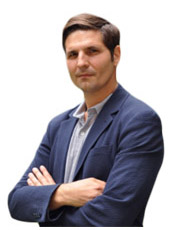 To assist the government in its digital transition, this year Sciences Po and its School of Public Affairs inaugurated a "Public Policy Incubator".
To assist the government in its digital transition, this year Sciences Po and its School of Public Affairs inaugurated a "Public Policy Incubator".
A purely technological approach is not enough when designing the State as a platform for the 21st century: a digital revolution is above all a political, social, ethical, economic, etc. revolution. By bringing together all of these components, this education includes learning about digital culture and its core issues and challenges, areas of disruption, ethical and legal aspects, data, new technologies and information systems. It also means teaching a new culture of innovation, entrepreneurship, design thinking and management, paving the way for a culture of innovation and fostering the ability to tap into the power of the crowd when designing public policies.
It is vital to provide business incubator facilities, where students and researchers can work together on achieving concrete, needs-based solutions that will have a direct impact on the lives of citizens.
The only thing this innovation-centric programme – which is open to all government agencies, local authorities, businesses and members of civil society – needs now are your suggestions and contributions!
Yann Algan, Dean of the Sciences Po School of Public Affairs

|  |
 |
Regulation in action
Problems with your ISP, fixed or mobile, mail or parcel operator? Let us know on: jalerte.arcep.fr!
Overbilling, faulty telephone service, a parcel that never arrived… Whether you are an individual, a business or a local elected official, since 17 October you have been able to report any malfunction in the service provided by your operator by visiting: jalerte.arcep.fr.
For users, this platform creates an opportunity for citizen action, allowing their experiences to help shape market regulation. For Arcep, the reports gathered through this platform will enable it to track the problems encountered by users in real time, to identify recurrent malfunctions, to detect both spikes in user alerts and weak signals and, if necessary, to take action with operators to correct the situation. With the ultimate aim of becoming a more effective regulator.
More than 9,000 alerts have already been received. Arcep will share the main conclusions drawn from these data, along with the ways in which they have helped the regulatory process, in its annual report.
Report an issue to Arcep
Data-driven regulation explained in 2 minutes (in French)
|  |
 |
|
On our radar
| |
Sophie Primas, Chair of the Senate Economic Affairs Committee
Former member of the Committee for the digital divide and the National digital council (extended formation), Sophie Primas has just been appointed Chair of the Senate Economic affairs committee, following the senatorial elections on 24 September. This committee is responsible for supervising Arcep’s actions. It solicited Arcep’s advice on the objectives set for the France Très Haut Débit superfast rollout scheme, and on SFR’s proposal to bring fibre coverage to the whole of France (“fibrer la France”). Arcep Chairman, Sébastien Soriano, was queried on this issue by this committee, and the Committee for regional and sustainable development, on 25 October.
Arcep’s advice to the Senate
| 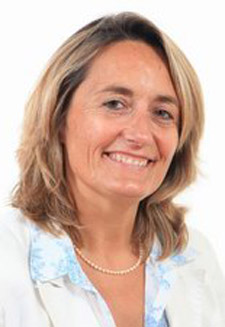
|
|
| | 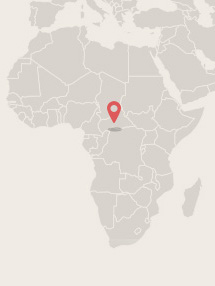 | |
News from around the world
End of roaming charges in Africa?
Europe is not the only place where roaming charges are being phased out, and Africa could soon follow suit. Reducing international roaming charges for people travelling between African countries, to stimulate mobility amongst the population and unlock their use of mobile technology, is a real priority for the continent.
In early October, the fifteen members of the Economic Community of West African States (ECOWAS) took a major step in this direction by approving draft regulation whose goals are:
- to eliminate call termination and roaming charges within the ECOWAS area;
- to set a cap on calling charges within the economic area.
Initially, the charges that apply in the country being visited, including for international calls (“roam like a local”), will apply to travelling users. The ultimate goal is nevertheless to fully abolish roaming charges across the region, i.e. to allow users to “roam like at home”.
This initiative follows through on the "Free Roaming" initiative introduced jointly by six countries in the region in late March 2017, and supported by the West Africa Telecommunications Regulators Assembly (WATRA).
|
| |
 |
Meanwhile in Brussels...
European Electronic Communications Code: talks are progressing!
Now that the European Council and Parliament have ratified their negotiation mandate on the “Telecoms code,” three-way talks have begun between the European Council and the European Parliament, before the European Commission, and will run until early 2018. Several decisive issues will need to be resolved during these discussions: the role of independent regulators, conditions governing access to spectrum, and the scheme for the new network components subject to co-investment.
Moreover, on 2 October the European Parliament Committee on Industry, Research and Energy (ITRE) adopted a report on the draft regulation on BEREC, the Body of European Regulators for Electronic Communications. Contrary to the European Commission’s proposal, which would transform BEREC into an agency, the adopted report preserves the current structure that enables efficient cooperation between independent NRAs, while also bringing improvements to it.
Report on the draft regulation on BEREC

|  |
 |
Arcep, telling it like it is
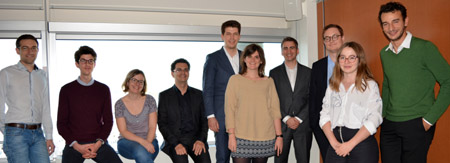 A dedicated team examines the influence that devices have on open internet access A dedicated team examines the influence that devices have on open internet access
Smartphones, tablets, voice assistants... Are devices the weak link in achieving an open internet? This is a wide-ranging topic that Arcep has been investigating since early 2016. The first step in the process: the publication in May 2017 of a map-based representation of the impediments to open internet access that stem from devices.
For the second stage of its work, Arcep will be adopting a more technical and forward-looking approach, combining the complementary expertise of its different departments to create a cross-functional team dedicated to this project – led by Jennifer Siroteau, head of the Economic analysis and Digital intelligence unit.
Its goal: to draft proposals for corrective measures, which can be taken at the national or European level, if threats to a fully open internet are identified.
To drive forward its investigation into this new issue, the team meets regularly with market stakeholders (users, equipment suppliers, developers, etc.) to gain a detailed understanding of the different points of view. To this end, it has been hosting a series of targeted workshops since October:
- Let’s design the ideal app store!
- Back to the future! Let’s design tomorrow’s devices, in light of past successes and failures
- Are we being held hostage by our operating systems? A round-up of available solutions
The team will share the findings of its investigation at an international event in February 2018.
Find out more
Jennifer Siroteau, Simon Berger, Hélène Bout, Arnaud Comerzan, Thomas Delafosse, Olivier Delclos, Boris Gartner, Julien Gilson, Sylvain Loizeau, Anne-Lise Lucas, Vincent Toubiana
|  |
 |
End of November in Paris
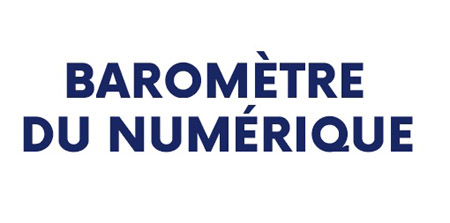
Presentation of the Digital market barometer
For a detailed snapshot of digital device ownership and usage in France: web browsing, favourite devices, mobile consumption habits (calling, texting and data) in the European Union since roaming charges were abolished in late June, popularity of instant messaging… The latest edition of the Digital market barometer – the benchmark for tracking digital behaviours in France – will be published in late November. This statistical report is produced by CREDOC on behalf of Arcep, the Economic General Council and the French Digital Agency.
|  |
 |
From 6 to 9 November in Lisbon
Web Summit
Nicknamed the “Davos for Geeks” by Bloomberg and called the “Best Global Tech Conference” by Forbes, the Web Summit has become one of the most high-profile digital events in Europe since its creation in 2010. Some 60,000 participants from more than 160 countries, along with around 1,000 speakers are expected to converge for the 7th edition of the Summit. Among them will be Arcep Chairman and BEREC Chair for 2017, Sébastien Soriano, who will be taking part in the roundtable titled, “Beyond net neutrality: the future of internet freedom?”
Find out more
8 November in Paris
Workshop “A company’s rights and recourse when in dispute with a telecoms operator”
On 8 November, Arcep will be hosting its third “business workshop” aimed at micro, small and medium enterprises, as well as trade and consumer associations. Aware that a great many companies do not know that their telecom contracts are legally protected by consumer law, Arcep decided to use this workshop to delve deeper into the question of the legal protections available to businesses. The purpose will be not only educate but also to help businesses understand their rights and the means of redress available to them should a dispute with their operator occur.
13 November in Paris
Arcep workshop: “Back to the future! Let’s design tomorrow’s devices, in light of past successes and failures”
As part of its investigative cycle into the question: “Are devices the weak link in achieving an open internet?”, Arcep will be hosting a workshop at the Tank, aimed at equipment suppliers and operating system developers. Despite a plethora of fixed and mobile devices available in the marketplace, the choice of operating systems remains limited. Is there still room for new players in the OS sector? The workshop will also provide an opportunity to design the smartphone of the future. To find out more/register: terminaux@arcep.fr
15 and 16 November in Montpellier
Digiworld Summit
This year marks the 39th edition of the annual Digiworld Summit! Hosted by IDATE Digiworld, this year’s conference will focus on the theme: “Investing in our Digital Future”. More than 1,100 participants from France and around the world will congregate for two days in Montpellier. The event will combine plenary sessions – investing in networks and infrastructure, Europe’s regulatory framework, artificial intelligence – and Expert seminars devoted to 5G, IoT, network convergence, and more. Arcep Chairman and BEREC Chair for 2017, Sébastien Soriano will deliver a keynote on Thursday morning.
Find out more
From 20 to 26 November across France
Public sector innovation week
The Government is showcasing proactive administrations working on behalf of all users. Innovation week will throw the spotlight on the State-as-a-platform dynamic, the creation of new government services, and the challenges of innovation in the government’s digital transformation. Public and local authorities can organise any events they want during this week being organised by the Secretary General for Modernising government action.
Find out more (in French)
24 November in Paris
Arcep workshop “Are we being held hostage by our operating systems? A round-up of available solutions”
When users wants to switch smartphones, there are obstacles that may prevent them from choosing a different OS: problems with transferring their data (contacts, photos, calendar, e-mail accounts, applications…), the loss of certain apps or services when switching to a new environment... As part of its investigative cycle into the question: “Are devices the weak link in achieving an open internet?”, Arcep invites consumer and user protection associations to share their views on the matter, on the morning of 24 November at Cap Digital. To find out more/register: terminaux@arcep.fr
| |

 |
|  |
|

